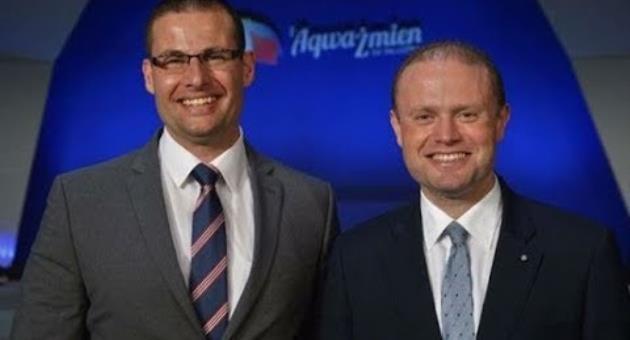
There’s a lot of fascinating detail in the inquiry report beneath the earth-shattering headlines about the State’s responsibility in the killing of Daphne Caruana Galizia.
Here’s an interesting point. The inquiry board was faced by refusals from Joseph Muscat and other former and present ministers in his governments refusing to answer questions or provide information on the back of the excuse that the matter had been discussed in Cabinet and was therefore protected by secrecy rules.
The inquiry called that bullshit. Well, not in so many words, but you can read the words they used for yourself.
There’s no doubt that the Constitution requires ministers to be responsible as a collective when they’re answerable to Parliament. That means that a decision taken by Cabinet is something all ministers are responsible for.
There’s also no doubt that for this rule to work, Ministers should feel comfortable to say so when they disagree with something proposed to Cabinet. The fact they disagreed or even what they thought about it should be kept a secret because they will then need to back the decision up if it is adopted. If that secrecy is not assured everyone will just shut up when something is discussed which helps no one.
So far so good.
That does not mean that nothing related to anything that was ever discussed in Cabinet can ever be asked or answered.
By way of example. Cabinet decides that a new playing field should be built somewhere. Some Ministers disagree because they think a school should be built instead but ultimately Cabinet decides to go for the playing field. The Minister responsible for playing fields takes a bribe when the contract to build it is given to a buddy of his.
It is perfectly ok for Ministers who disagreed with the idea of the playing field not to have their views before the decision was taken exposed. But that doesn’t mean that no one can ask questions about the bribe the Minister for playing fields took.
The Board of Inquiry was told, for example, it couldn’t ask questions about, say, Electrogas because Cabinet had discussed and decided on the Electrogas contract and everything about it was now a secret. Complete bullocks. Did Cabinet decide that there should be bribes paid in Panama? If it did, it didn’t say so and therefore that is not part of the decision, deliberations over which would be privileged.
The Board of Inquiry not only said it disagreed with the reason given by Joseph Muscat and these present and former Ministers to refuse to answer its questions. The Board pointed out that if Joseph Muscat and his obfuscating Ministers were right about this, then the Parliamentary decision to appoint the Board to investigate the conduct of the government would have been entirely useless.
And the Board went further. They ignored the bullshit about Cabinet secrecy and went ahead with their investigation.
This recalls something that was happening elsewhere in just the last few days. I wrote yesterday about Robert Abela intervening on behalf of his Gozo Minister Clint Camilleri who was refusing to answer questions from Standards Commissioner George Hyzler about his conduct in the case of the conversion of the Downtown hotel into a government old people’s home.
Robert Abela told George Hyzler that Cabinet had discussed the Downtown project and that therefore the Commissioner should back off as Cabinet matters are secret. George Hyzler called it bullshit, perhaps not in so many words. And, here’s the significant bit, George Hyzler went ahead with the investigation ignoring Robert Abela’s unlawful excuse demanding that he stops.
As it happened George Hyzler still found no evidence of wrongdoing in the Downtown case. But it’s important to underline that the government’s unlawful excuse that no questions can be put to it on any matter discussed in Cabinet has been rejected by at least one law enforcement institution.
George Hyzler must be comforted reading the Daphne inquiry’s thoughts about just this question.
Cabinet secrecy is not meant to create opacity at the heart of government where crimes and unethical conduct can be hidden. Cabinet secrecy, ironically, is intended to facilitate the collective responsibility of all Ministers on decisions that are actually taken by the Cabinet. It is meant to ensure accountability not allow crooks in government to slip away from it.
Case in point. The Daphne inquiry found Ministers are collectively responsible for the failure to act on the Panama Papers revelations. The inquiry found their failure to act means they are responsible for the killing of Daphne Caruana Galizia.
Aha. There we know that Cabinet decided to fail to act. There, Cabinet secrecy must be respected. It doesn’t matter now if Chris Fearne or Evarist Bartolo disagreed with the decision the Cabinet took to give immunity to Keith Schembri and Konrad Mizzi. What matters is they stood by the decision to give them immunity when instead they should have, if that’s what they thought they should have done, distanced themselves from that collective decision.
They didn’t. That’s no secret now.